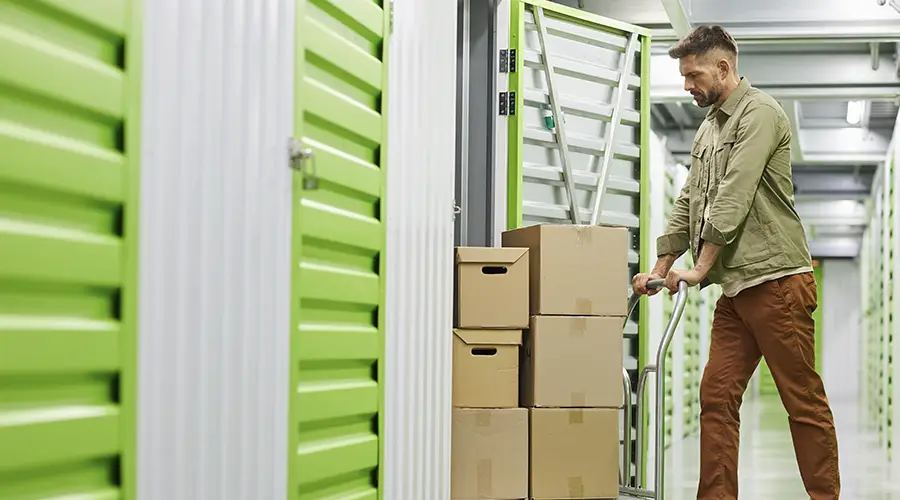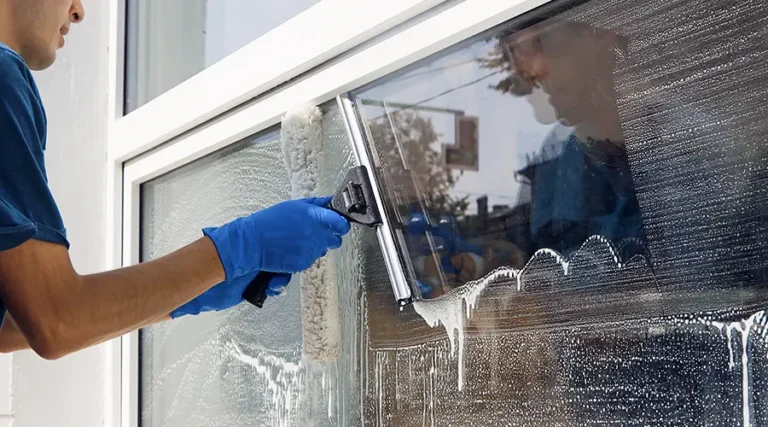How To Start a Storage Business
Our Comprehensive Guide to Launching a Profitable Self-Storage Rental Unit Business in 2023
We’re about to dive deep into the thriving, fast-paced world of the self storage business.
Believe it or not, this under-the-radar sector of commercial real estate has been steadily growing, churning out a staggering $39 billion in annual revenue as of 2023, with the U.S. leading the charge. It’s a veritable gold rush, and it’s time you staked your claim.
So, you might be thinking, “That sounds great, but how do I start a self-storage business?”
Don’t worry, we’ve got your back.
In This Article
- Self-Storage Keys To Success
- How To Start a Storage Business
- Getting to Grips with the Landscape of the Mini Storage Unit Business
- Identifying the Key Drivers of Demand When Starting a Self-Storage Business
- Comprehending Legal and Regulatory Essentials for Running a Self Storage Unit Business
- Planning Facilities and Operations for Your Startup Self Storage Business
- Financial Aspects to Consider: From Business Plan to Small Business Loan
- Mastering Marketing and Customer Acquisition for Your Self Storage Business
- Pricing Strategies and Revenue Generation in the Storage Unit Business
- Wrapping Up: Starting and Running a Successful Self Storage Business – A Recap
Self-Storage Keys To Success
Flexible Pricing
Adapt your storage unit prices to the ever-changing demand in your local market.
Brand Awareness
Integrate your company into the community and make sure residents know who you are!
Customer Service
Meet your customer’s needs to reduce turnover and increase word-of-mouth advertising.
Property Selection
Find land that is affordable, yet accessible. Work with a real estate agent to identify the best fit.
How To Start a Storage Business
This comprehensive guide is packed to the brim with all the crucial information you’ll need. From breaking down financial projections to unraveling the complexities of operational strategies, and even unveiling insights from industry case studies, we’ve left no stone unturned.
After navigating through this guide, you won’t just understand the ins and outs of how to kick-start a storage business, you’ll be pumped and ready to plunge into your very own storage unit venture.
So, are you ready to turn the key and open the door to your future in the self storage business?
Let’s hit the ground running!
Getting to Grips with the Landscape of the Mini Storage Unit Business
Let’s flip the lid and take a peek at the vast expanse of the self-storage industry. Now, if you’re wondering whether there’s room for one more in this arena, let’s crunch some numbers. As of 2023, this buzzing beehive of a business is generating a hefty $39 billion in annual revenue right here in the U.S. alone. That’s no small change, my friends! And get this, the U.S. is not just playing in the big leagues, it’s practically owning the entire stadium, accounting for 90% of the global self-storage inventory.
But what about the competition, you ask? Well, there’s no sugarcoating it – the storage business is a bustling marketplace. With over 182,000 storage businesses operating nationwide, you’re certainly not alone. But don’t let that intimidate you! This number also serves as a testament to the industry’s robust nature and the vast demand for storage space.
| Key Figures | Stats |
| Annual Revenue (U.S) | $39 billion |
| Global Self Storage Inventory (U.S Share) | 90% |
| Operating Storage Businesses (Nationwide) | 182,000+ |
The beauty of the storage unit business lies in its versatility. From folks looking to declutter their homes to businesses in need of extra space storage, there’s a demand across the board. And that’s precisely what makes this business such a good bet. It caters to a need that’s not going away anytime soon.
Starting a self storage business may seem like a daunting task, but with the right plan, resources, and a dash of entrepreneurial spirit, it’s a mountain you can conquer. So, are you ready to ride this wave and make your mark in the storage industry? Let’s roll up those sleeves and get down to business!
Identifying the Key Drivers of Demand When Starting a Self-Storage Business
Now, let’s get down to brass tacks and look at who is driving the demand in the mini storage business. As a potential new business owner, understanding consumer demand is the compass that’ll guide your storage unit business towards success. Here’s a snapshot of the movers and shakers in the storage market:
- The Nomads: With life on the move becoming the norm, moving remains the primary reason folks seek out mini storage solutions. Be it a job relocation, downsizing, or even a gap year spent globetrotting, having a safe space to store their belongings offers peace of mind during these transitional periods. So, if you’re wondering how to start a self storage business that resonates with this demographic, consider offering flexible rental terms and hassle-free access to the storage units.
- The Space Savers: Did you know that over 1 in 5 renters in the U.S. utilize self storage units? That’s a significant market slice to cater to! From apartment dwellers looking to declutter their space to small businesses needing extra inventory storage, the demand spans across various user groups. Offering a range of unit sizes can help you cater to this diverse clientele.
- Generation X: Representing a considerable user group within the self-storage industry, Gen Xers often require storage space for myriad reasons. From moving homes to storing inherited items, their demand for storage facilities is quite robust. To start a storage business that appeals to this demographic, you might want to consider offering services like controlled storage or extra space storage.
- The Ladies: Female renters constitute another significant user group in the self-storage industry. Safety and cleanliness are often high on their priority list. To attract this demographic, focus on ensuring well-lit facilities, 24/7 surveillance, and immaculate storage units.
It’s clear as day that the storage business is not a one-size-fits-all kind of deal. The key to running a successful storage business lies in understanding the unique needs of these consumer groups and tailoring your services to meet them. And with the right approach, you could be well on your way to turning your business idea into a thriving self-storage business in 2023!
Comprehending Legal and Regulatory Essentials for Running a Self Storage Unit Business
When you’re ready to start your mini storage business, it’s crucial to get your ducks in a row when it comes to legal and regulatory requirements. It might seem like you’re jumping through hoops, but each step is essential for getting your business off the ground and avoiding potential hiccups down the line. Here’s a breakdown:
Licenses and Permits
Every business, including a storage facility, requires specific licenses and permits to operate legally. Typically, you’ll need a general business license, but depending on your location and the nature of your business, additional permits may be required. For instance, if your self-storage unit business plans on offering RV storage, you might need extra permits. Remember, it’s important to register your business and open a business bank account to keep your finances in order.
Zoning Laws
Do you know the saying, “location, location, location”? Well, it’s not just about finding a spot with high demand. Zoning laws can dictate what type of business you can run in certain areas. These laws vary widely, so you’ll need to check with your local planning or zoning department to ensure your storage facilities are in compliance.
Insurance
Here’s the deal: starting a self-storage business in 2023 without the right insurance policies is like walking a tightrope without a safety net. Different types of insurance, such as property insurance, liability insurance, and workers’ compensation insurance, will protect your business from potential financial losses. It’s also worth considering specialized insurance that covers customers’ belongings in storage.
Business Structure
Deciding on your business structure isn’t just a box to tick—it’s a decision that can impact your business in many ways, from how much you pay in taxes to your personal liability. You can choose to set up as a sole proprietorship, partnership, corporation, or Limited Liability Company (LLC). Each type of business entity has pros and cons, so it’s essential to get advice from a professional or the Small Business Administration.
Starting a storage business involves more than just renting out storage units—it requires a good understanding of the legal and regulatory landscape. However, with a little bit of elbow grease and the right guidance, you can navigate these waters and launch your business with confidence.
Planning Facilities and Operations for Your Startup Self Storage Business
Starting a mini storage business is no small task—it requires careful planning and efficient operations management. It’s not just about having space; it’s about making the best use of that space and providing exceptional customer service. To give you an idea of what you’re stepping into, here’s a bit of data and a few considerations for you.
Average Occupancy and Facility Size
If you’re thinking about starting a storage company, the numbers are promising. In the U.S., the average occupancy rate for storage facilities sits at an impressive 96.5 percent.
| Average Occupancy Rate | Average Facility Size |
| 96.5% | 56,900 square feet |
When it comes to facility size, the average mini storage facility in the U.S. covers approximately 56,900 square feet. This doesn’t mean your facility must fit this mold—it’s just the average. Your facility size will depend on factors like location, demand, and your business plan.
Construction Costs
When it comes to construction costs, figures can range from $1.25 million to $3.5 million. The costs can vary depending on factors like location, land cost, facility size, and construction materials.
| Low-End Cost | High-End Cost |
| $1.25 million | $3.5 million |
Remember, starting a business is an investment, and the initial costs can be steep. However, with the right planning, management, and a good business loan, you can navigate these costs and set up a profitable storage unit business.
Technology and Operations
In today’s digital age, the incorporation of technology into your storage business operations is more of a necessity than a luxury. There’s a wealth of management software and online booking systems available that can streamline your operations and enhance the customer experience. Consider the following:
- Management Software: These tools can help you track your occupancy rate, manage rental rates, and handle other administrative tasks.
- Online Booking Systems: These can offer convenience to your customers, allowing them to book storage units at their leisure and streamline the rental process.
- Security Systems: High-quality surveillance systems and access control are a must for any self-storage unit business. Customers need to know that their belongings are safe.
- Website: Your business online is essential in this digital age. An intuitive, user-friendly website can help you reach more customers and provide them with the information they need about your storage services.
Starting a self storage business might seem daunting, but with the right planning and a clear understanding of the industry, it’s a journey you can confidently embark on. Remember, every business requires dedication and hard work—yours will be no exception. So, are you ready to take the leap?
Financial Aspects to Consider: From Business Plan to Small Business Loan
Money makes the world go ’round, and it certainly sets the wheels in motion for your storage business. Understanding the financial aspects, from revenues and profit margins to startup costs and financing options, is crucial. So let’s dive into the numbers, shall we?
Revenues and Profit Margins
Let’s talk earnings. The average annual revenue for a self-storage business is about $450,000, boasting a healthy profit margin of 41%.
| Average Annual Revenue | Average Profit Margin |
| $450,000 | 41% |
These figures can vary based on factors like location, unit sizes, number of units, and additional services you may offer. So, while you might start a bit lower as a newcomer, with strategic planning and excellent customer service, there’s potential for growth.
Startup Costs
The start-up cost for a mini storage business can seem a tad intimidating, ranging from $1.5 million to $2.4 million, averaging around $2 million. These figures account for land acquisition, construction, operational setup, and initial marketing efforts.
| Low-End Cost | High-End Cost | Average Cost |
| $1.5 million | $2.4 million | $2 million |
While it might seem like a lot, remember that starting a business is a significant investment. It’s about putting in the capital now to reap the benefits later.
Financing Options
With numbers like these, it’s no wonder you might be considering financing options. One viable route is through SBA (Small Business Administration) loans. These loans are designed to help entrepreneurs like you get their dreams off the ground.
- SBA 7(a) Loans: This is the most common type of SBA loan. It can be used for a variety of purposes, including purchasing land or buildings, construction costs, or even as working capital.
- SBA CDC/504 Loans: These loans are specifically for purchasing major fixed assets like land or buildings. If you’re looking at building a new facility, this could be a great option.
Remember, it’s crucial to have a solid business plan when applying for these loans. The lenders want to see that you’ve thought things through and have a plan for making your business profitable.
The journey of starting a self storage business might seem daunting, especially when you’re staring at these numbers. But don’t let it deter you. With the right planning, a clear understanding of your costs, and the help of financial tools, you’re one step closer to opening for business. Remember, every successful business started with someone taking that first daunting step. Are you ready to take yours?
Mastering Marketing and Customer Acquisition for Your Self Storage Business
In a world where competition is fierce and standing out is vital, setting up a winning marketing and customer acquisition strategy for your storage business is a must. From brand identity to digital marketing, let’s roll up our sleeves and dive into the nuts and bolts of getting your business noticed and attracting customers.
Establish a Strong Brand Identity
A strong brand identity sets your business apart from the competition. This goes beyond just your business name. It includes everything from your logo and tagline to your company’s mission and values.
- Choose a Unique Business Name: Research existing storage businesses to avoid duplication and check if the name is available for trademark. Your business name should be easy to spell, pronounce, and remember. It should also hint at the services you provide. Use tools like a business name generator for inspiration and don’t forget to check domain availability for your website.
- Design a Memorable Logo: Your logo should reflect the nature and values of your business. Consider hiring a professional graphic designer who can bring your vision to life. Tools like Canva also offer easy-to-use design templates for those on a budget. Remember, your logo will be on your website, marketing materials, and possibly even on the signboard of your storage facility, so it’s worth the investment.
- Define Your Mission and Values: This involves a deep understanding of your business, your goals, your customers, and the market you operate in. A mission statement should clearly communicate what your business does, who it serves, and how it does it. Your values should reflect the principles and beliefs that guide your company’s actions. These will help you to create a business culture and a brand that resonates with your target audience.
Build a Robust Online Presence
In 2023, your digital footprint matters more than ever. From your website to social media, make sure your self-storage company is easy to find and hard to forget.
- Website: Your website is your virtual storefront. Make sure it’s clean, easy to navigate, and mobile-friendly. Highlight your services, provide clear pricing information, and include a simple booking system. It’s also crucial to have your contact information prominently displayed.
- SEO: SEO, or search engine optimization, is about making your website more visible on search engines like Google. This involves keyword optimization, quality content creation, and building backlinks. Consider hiring an SEO expert or using SEO tools like SEMRush or Yoast SEO.
- Social Media: To start, choose the social media platforms where your target customers spend most of their time. Create engaging content that provides value to your followers. This could be tips on how to pack a storage unit or a behind-the-scenes look at your facility. Be consistent in your posting and engage with your followers by responding to comments and messages.
- Google My Business: To set this up, go to the Google My Business website and follow the prompts to add your business. Include as much information as possible, like your address, hours of operation, and photos of your facility. Encourage happy customers to leave reviews to boost your credibility.
Implement a Referral Program
Word-of-mouth is a powerful marketing tool. Implement a referral program that incentivizes your existing customers to refer their friends and family.
- Offer Discounts: For every successful referral, you might offer your existing customer a percentage off their next month’s rent. The key is to make the discount enticing enough that customers want to participate.
- Provide Extra Services: This could include providing a free moving truck for a day, offering complimentary moving supplies, or providing a free upgrade to a larger storage unit for a certain period.
Collaborate with Local Businesses
Build relationships with local businesses and explore potential collaboration opportunities.
- Moving Companies: Reach out to moving companies in your area and propose a partnership. This could be as simple as distributing each other’s marketing materials or as formal as a referral fee agreement.
- Real Estate Agencies: Similar to moving companies, real estate agencies can be a great source of referrals. Introduce your business and offer promotional materials they can share with their clients.
Advertise
Last but not least, invest in advertising. This can range from traditional methods like print ads and billboards to digital advertising like Google Ads or social media promotions.
Starting your self-storage business involves many moving parts, and marketing and customer acquisition are crucial pieces of the puzzle. Implementing these strategies will help you attract and retain customers, ensuring your business doesn’t just survive, but thrives in the competitive storage industry. Ready to make your mark?
Pricing Strategies and Revenue Generation in the Storage Unit Business
Taking the plunge into starting a storage business can be a lucrative venture, but let’s not skip over the crucial aspect of pricing and revenue generation. After all, a well-thought-out pricing strategy could be the difference between a storage facility that’s half-empty and one that’s making bank.
Deciphering the Average Cost
The price is a major determinant for customers choosing between different storage companies. As of 2023, the average monthly cost for a storage unit is a cool $100.04. Now, you might be wondering, “How much does it cost to provide these storage units?” Well, that’s where your cost analysis comes in. It’s vital to consider expenses like maintenance, security, and overhead when setting your prices.
Implementing a Pricing Strategy
For a mini storage business, utilizing market-based and target-based pricing approaches can help you set competitive and profitable unit prices.
Market-based Pricing
This approach involves setting your prices based on the going rate in your specific market. It’s a simple concept – you’re essentially pricing your units similar to (or slightly lower than) your competitors to attract customers. However, it’s vital that you’re still covering your costs and securing a profit.
Target-based Pricing
Target-based pricing, on the other hand, is when you price your units based on the profit margin you aim to achieve. You calculate this by adding your desired profit to the cost of running a storage unit. This approach requires a solid understanding of both your costs and the value your customers place on your service.
The Most In-Demand Cities for Self Storage Units
While Houston, TX, holds the crown as the most in-demand city for self storage units, it’s not the only city with a buzzing market. The demand for storage units varies greatly from city to city, often in line with factors such as population growth, real estate trends, and local economic conditions. Below is a table highlighting the top five cities in the U.S. for self-storage demand and their average monthly prices.
| City | Average Monthly Price |
| Houston, TX | $87.27 |
| Los Angeles, CA | $112.35 |
| New York, NY | $176.42 |
| Dallas, TX | $91.87 |
| Chicago, IL | $98.73 |
Los Angeles, CA
The City of Angels comes in second place, with an average monthly price of $112.35 for a unit. Given its dense population and high real estate prices, it’s no surprise that people in LA are turning to self-storage as a space-saving solution.
New York, NY
With space at a premium in The Big Apple, New Yorkers are willing to pay an average of $176.42 per month for storage. This city is a prime example of high demand driving up prices in the storage industry.
Dallas, TX
Texas makes the list again with Dallas, where the average price for a storage unit is $91.87 per month. The city’s growth, combined with a strong economy, has led to an increased demand for storage units.
Chicago, IL
Chicago, the Windy City, rounds out our top five with an average monthly storage unit price of $98.73. Like the other cities on this list, Chicago’s dense population and urban living conditions contribute to the demand for storage facilities.
Revenue Generation
Aside from rental income from your storage units, there are other revenue streams to tap into:
- Late Fees: It’s common practice to charge late fees when customers don’t pay their rent on time. Make sure these fees are clearly outlined in your rental agreement.
- Sales of Packing Supplies: You can offer boxes, packing tape, bubble wrap, and other packing supplies for sale at your facility. It’s a convenient option for your customers and an additional revenue stream for you.
- Insurance: Many self-storage companies offer optional insurance coverage for the items stored in their facilities. If a customer chooses to purchase this, it can add to your revenue.
- Truck Rentals: If you have the resources, offering truck rentals can be a profitable add-on service.
It’s worth noting that running a self-storage business requires a keen understanding of your local market and a flexible approach to pricing. Keep an eye on your competitors, stay aware of the need for storage in your area, and adjust your pricing strategy as necessary to keep your business thriving. Remember, starting a self storage business is not just about providing space – it’s about offering a service that meets your customers’ needs at a price they’re willing to pay.
Wrapping Up: Starting and Running a Successful Self Storage Business – A Recap
As we wrap up this guide on how to start a self storage business, it’s clear that the storage industry presents a significant business opportunity. With the average occupancy rate of self storage facilities standing at an impressive 96.5% and a robust annual revenue, it’s no wonder entrepreneurs are drawn to starting such a business. However, running a storage business requires a comprehensive understanding of the market, strategic planning, and a credible business plan to ensure success.
When considering the cost to launch a self storage business, it’s crucial to factor in both the initial construction or acquisition costs and the ongoing operational expenses. Remember, there are various ways to open a storage business, each with their pros and cons. For those starting with no money, options like small business loans and other financing alternatives can make your business dreams a reality.
The key to a successful self storage company in 2023 and beyond will be in offering competitive rental storage rates, providing excellent customer service, and staying ahead of the technological curve. The storage market is evolving, and those who adapt will thrive. Don’t forget, the location of your storage units plays a crucial role in your business’s potential success, with cities like Houston, Los Angeles, and New York being particularly in-demand.
In conclusion, starting your own self-storage business is one venture with immense business potential. However, you need to know the ins and outs, from average storage unit prices to ways to generate business income. With this guide as your starting point, you’re well on your way to carving out your own corner in the storage industry. Go ahead, learn how to start, run the business like a pro, and get ready to open for business!











